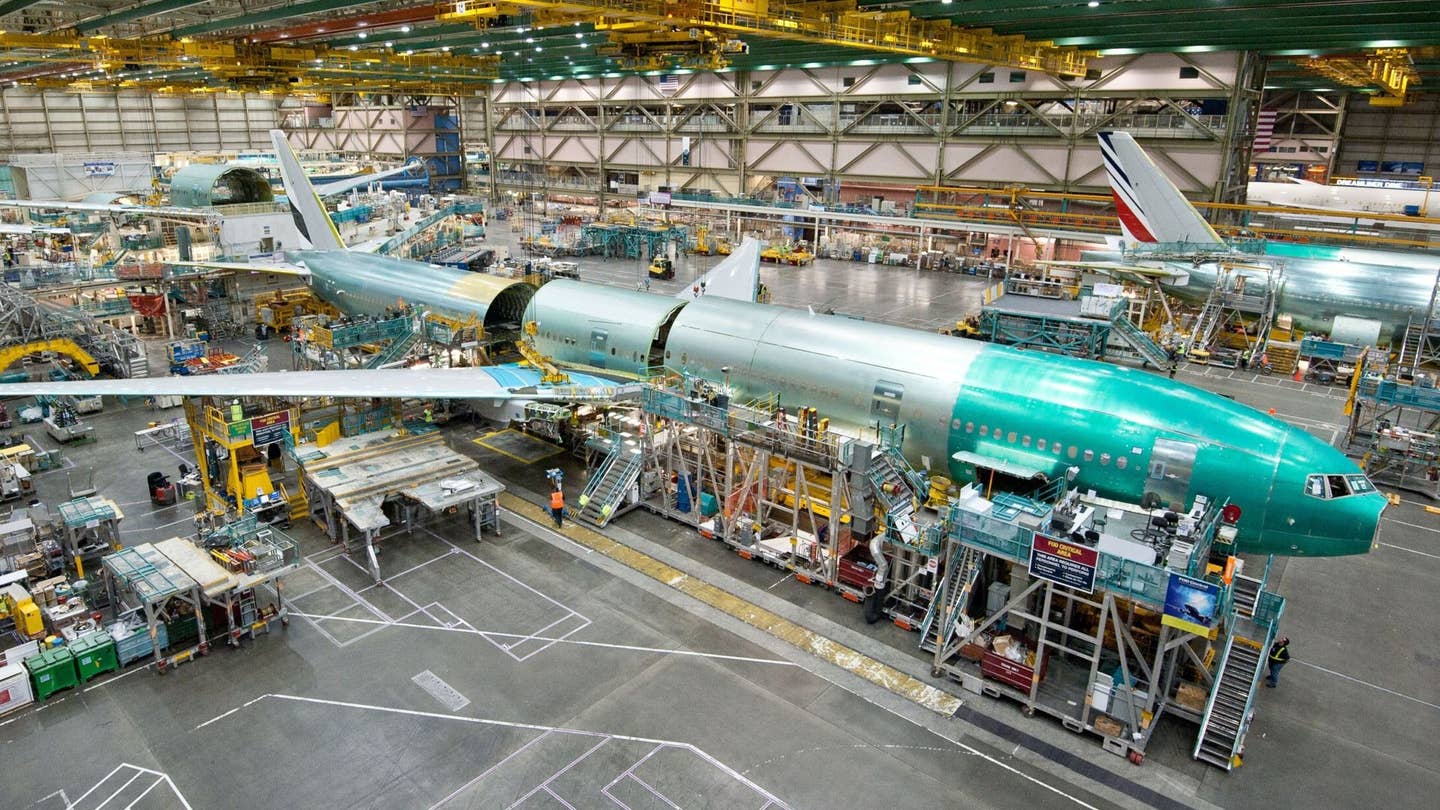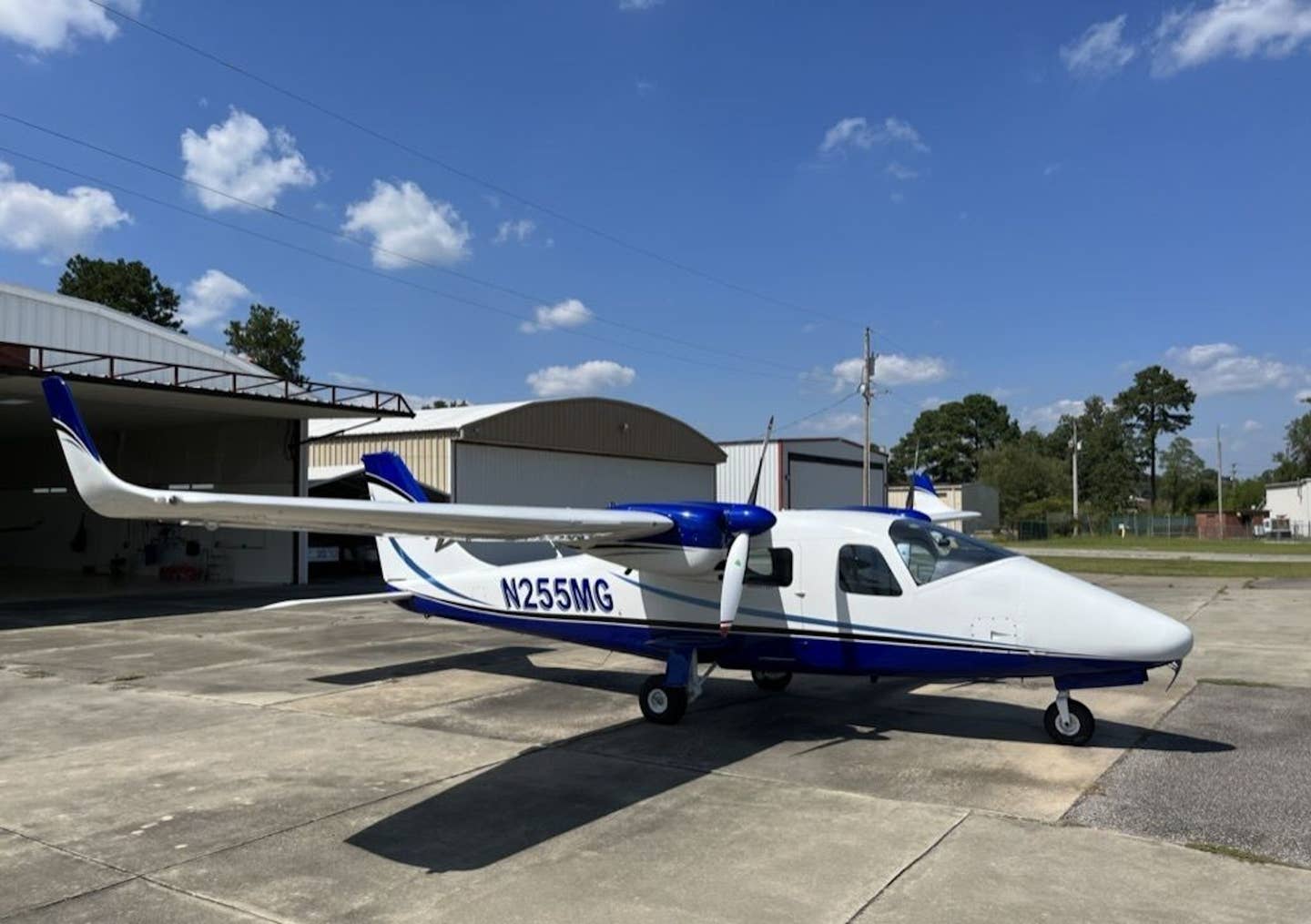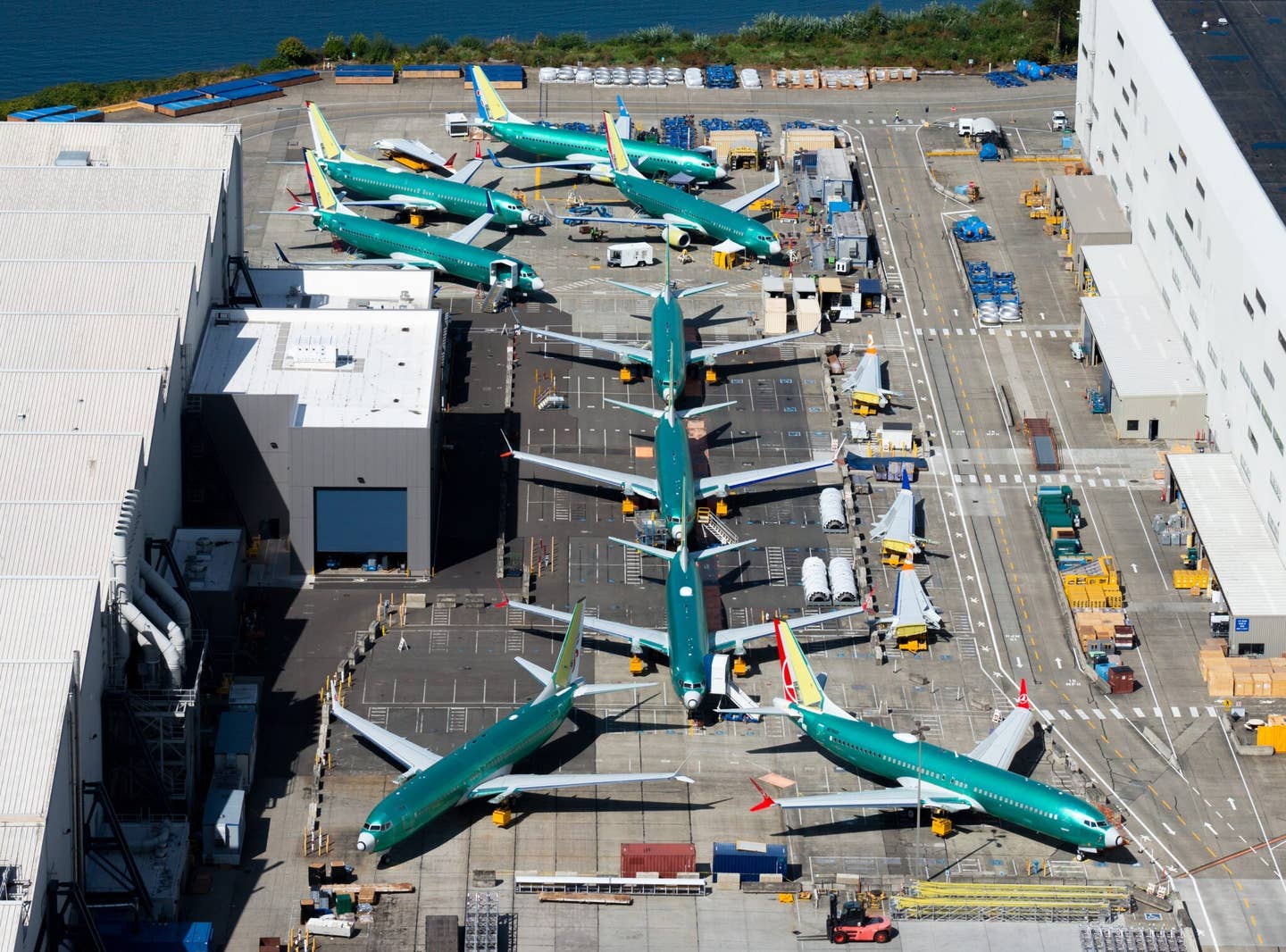Boeing Machinists Reject New Contract, Go on Strike
Production shutdown is the latest blow for the aerospace giant.

A 777 is joined together at Boeing’s assembly plant in Everett, Washington. Production will stop Friday as skilled tradesmen who build the planes go on strike. [Credit: Boeing]
More than 30,000 aerospace workers at Boeing will walk off the job Friday after a large majority of them rejected a tentative contract.
The International Association of Machinists and Aerospace Workers (IAM) announced the result on its website late Thursday night after vote tabulation was completed.
The union said its negotiating team will “regroup and begin planning the next steps on securing an agreement that our membership can approve.”
IAM chief Jon Holden said earlier this week that the tentative deal was the best contract the union has ever negotiated.
Union leaders and Boeing (NYSE: BA) reached a tentative agreement on Sunday, but rank-and-file machinists immediately expressed unhappiness with it. The last contract was ratified 16 years ago. On Monday, workers rallied outside Boeing’s widebody aircraft plant in Everett, Washington.
One of the biggest issues is pay. Boeing is offering a wage increase of 25 percent over four years, but union members say it doesn’t include their current yearly bonus. Boeing will also put more matching funds into a 401(k) retirement plan but won’t restore a pension plan that the machinists used to have and gave up in an earlier negotiation. The collective bargaining agreement would also change mandatory overtime so workers will be required to work overtime and weekends less often and it puts in a floating vacation holiday. Workers will also be able to progress through different job responsibilities more easily.
Workers also complain that the wage increase isn’t high enough, that the pension wasn’t restored and that Boeing’s promise to build a future aircraft type in the Puget Sound region only extends for the length of the contract. Workers still feel betrayed about previous rounds of negotiations in which Boeing twice threatened to move jobs outside of Washington.
If the strike is authorized and goes on for an extended period the delivery of aircraft and components would stop. That wouldn’t have an immediate effect on airlines but would exacerbate the current backlog of aircraft and further limit the ability of airlines to modernize or expand their fleets to reach new markets.
A strike comes at a difficult time for Boeing, which has suffered years of losses because of regulatory restrictions following a series of accidents and mishaps, as well as concerns about manufacturing quality and the safety culture that have slowed aircraft production rates. Still, some analysts have said that a production shutdown now isn’t the worst outcome because airlines are grappling with too much capacity as travel demand wanes and aren’t as eager to receive planes as they were last year.
A 10-week walkout in 1995 cost Boeing $100 million per day. The company has lost $27 billion since 2019.
FedEx pilots in summer 2023 rejected a labor deal negotiated by union leadership and appear to have lost negotiating leverage since then. The air cargo market softened and the pilot shortfall that allowed pilots at some passenger airlines to win substantial deals eventually lessened, reducing pressure on FedEx to raise compensation beyond its target.
New Boeing CEO Kelly”Ortberg has been on the job for a little over a month.
Editor’s Note: This article first appeared on FreightWaves.

Subscribe to Our Newsletter
Get the latest FLYING stories delivered directly to your inbox






